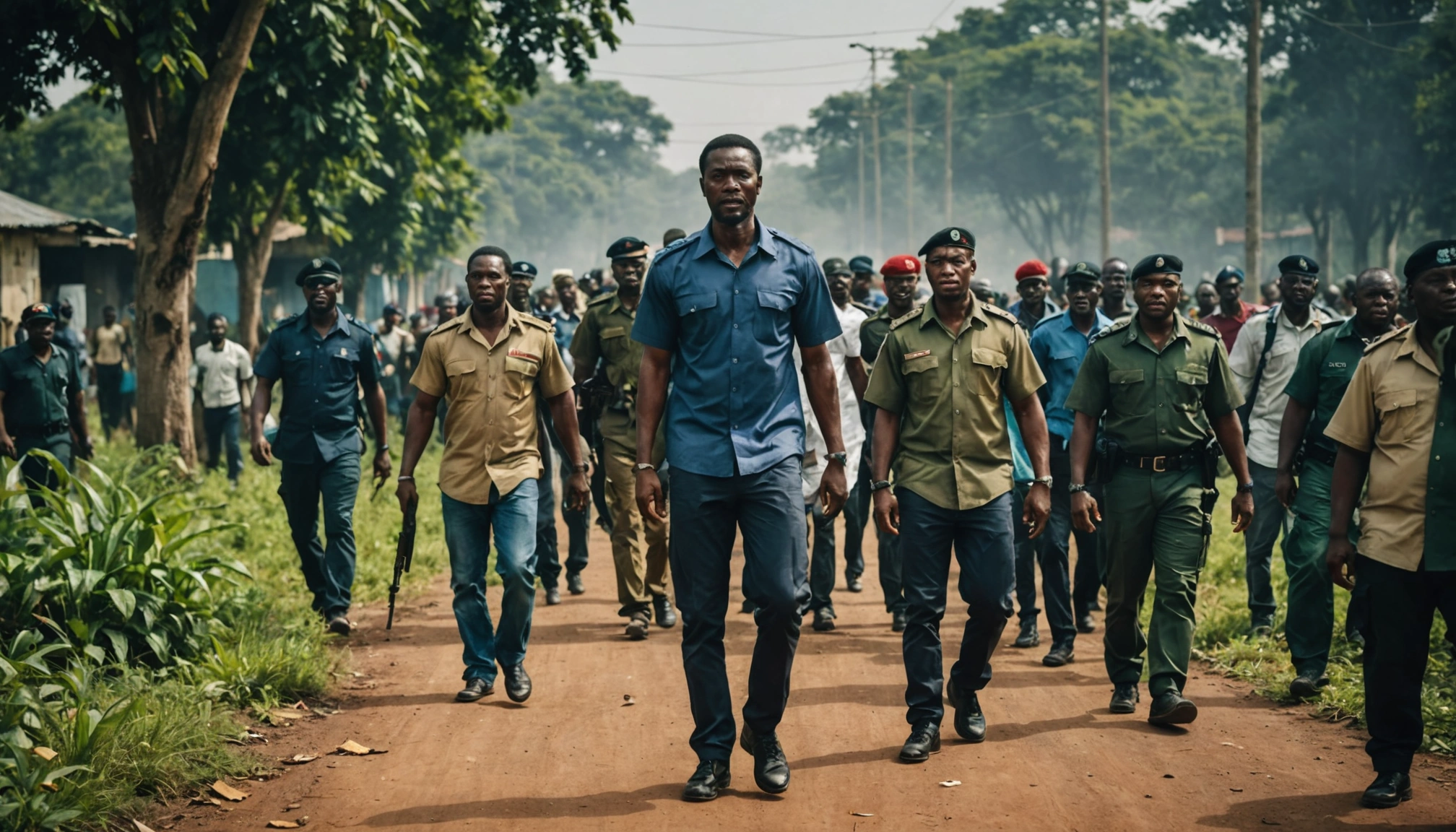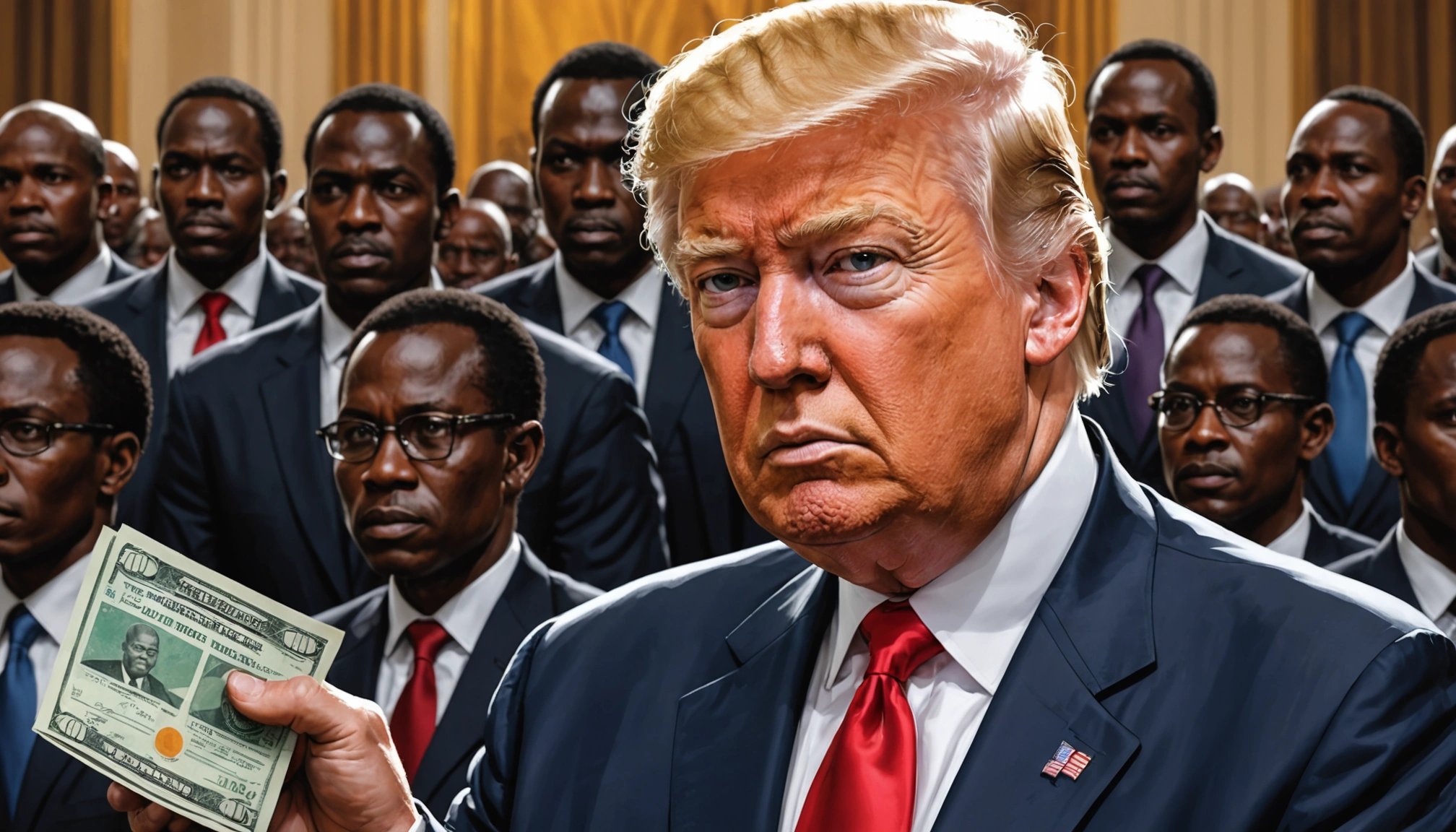Jungle Justice in Nigeria: Addressing the Rising Tide of Mob Violence

Across Nigeria, a disturbing trend continues to claim lives and undermine the rule of law: "jungle justice." This refers to instances where individuals or mobs take the law into their own hands, often resulting in violence, torture, and even death for suspected criminals, without any due process. The rise of jungle justice reflects a deep-seated crisis of confidence in the country's formal justice system and poses a significant threat to social order.
Root Causes of Jungle Justice
Several factors contribute to the prevalence of jungle justice in Nigeria. A primary driver is the widespread lack of trust in law enforcement and the judicial system. Many Nigerians believe that criminals often evade punishment through bribery and corruption, and that the police are either unwilling or unable to respond effectively to crime. This perception fuels a sense of frustration and encourages people to take matters into their own hands.
Rising insecurity, including banditry, kidnapping, and communal clashes, further exacerbates the problem. Communities, feeling vulnerable and unprotected by the government, may resort to jungle justice as a form of self-help. Ethnic and religious tensions also play a significant role, with biases making certain groups more susceptible to targeted attacks based on accusations, sometimes fueled by misinformation spread rapidly online. The slow pace of criminal trials and the failure to punish perpetrators of jungle justice further normalize impunity.
Recent Incidents and Their Impact
Numerous tragic cases highlight the brutal reality of jungle justice in Nigeria. In March 2024, sixteen hunters were lynched and burned in Uromi, Edo State, after being mistaken for bandits. In 2022, Deborah Samuel, a student in Sokoto State, was killed by fellow students over alleged blasphemy. These are just a few examples of the many incidents that occur across the country, often with little to no legal consequences for the perpetrators.
These acts of mob violence have far-reaching consequences. They undermine the legal system, weaken the rule of law, and promote a culture of violence and impunity. Jungle justice can also lead to the deaths of innocent people, as accusations are often based on rumors or misinformation. Moreover, it can exacerbate ethnic and religious tensions, further destabilizing communities. The effects of jungle justice also extend to the country's image, portraying Nigeria as primitive and undermining national and international security.
Proposed Solutions and Strategies
Addressing the problem of jungle justice requires a multi-faceted approach that tackles the root causes and strengthens the formal justice system. Some potential solutions include:
- Strengthening Law Enforcement and the Judiciary: The government must invest in training and equipping the police force to respond promptly and effectively to crime. The judicial system needs reforms to ensure swift and transparent trials, reducing delays and increasing public confidence.
- Public Education and Reorientation: Massive public enlightenment campaigns are needed to educate citizens about the rule of law, the importance of due process, and the dangers of mob violence. These campaigns should emphasize that anyone can be a victim of jungle justice and that suspected criminals should be handed over to the police for investigation and prosecution.
- Community Engagement and Vigilante Oversight: While vigilante groups can play a role in community security, they must be properly trained, regulated, and coordinated with national security strategies. This will help prevent abuses of power and extrajudicial actions.
- Addressing Socioeconomic Factors: Poverty, unemployment, and lack of education contribute to the problem of jungle justice. The government should work to improve living standards, create job opportunities, and promote education to reduce the desperation and frustration that can lead to mob violence.
- Legislative Action: Stricter laws criminalizing mob violence, with severe penalties for perpetrators, must be passed and enforced. The government should also ensure that victims of jungle justice and their families have access to justice and compensation.
- Promoting Tolerance and Understanding: Addressing ethnic and religious biases is crucial to preventing targeted attacks. The government should promote interfaith dialogue and work to foster a culture of tolerance and understanding.
The Role of State Police
The establishment of state police forces has been proposed as a way to improve community security and reduce the reliance on vigilante groups. State police, with access to local intelligence and cultural understanding, would be better equipped to handle community-level threats. However, it is crucial that state police forces are properly trained, accountable, and integrated into a broader national framework to prevent abuses of power. The House of Representatives Committee on Army has called for professional training and regulation of vigilante groups across Nigeria to prevent the growing incidence of jungle justice and lawlessness in communities.
A Call for Collective Action
Stopping the rise of jungle justice in Nigeria requires a collective effort from the government, law enforcement agencies, the judiciary, civil society organizations, and individual citizens. By addressing the root causes, strengthening the justice system, and promoting a culture of respect for the rule of law, Nigeria can create a safer and more just society for all. The gruesome killing of 16 innocent northern hunters in Uromi, Edo state over false accusations of kidnapping is a stark reminder of the urgent need for action. The government must ensure immediate arrest, prosecution, and conviction of all those involved in this heinous act.
Related Articles


